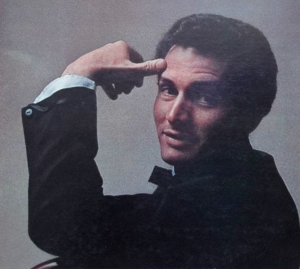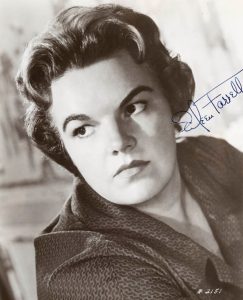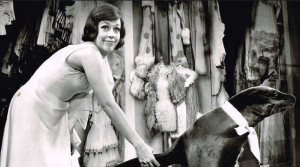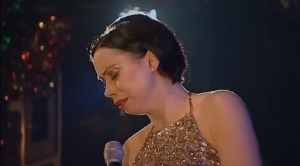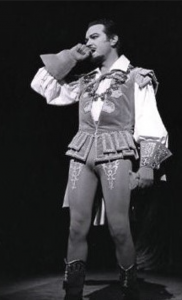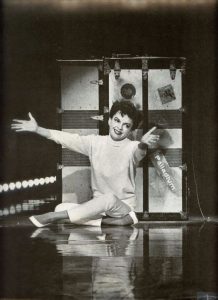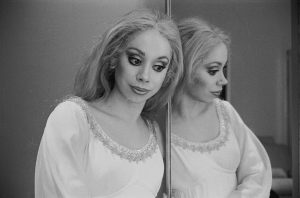Podcast: Play in new window | Download (Duration: 1:38:36 — 135.4MB) | Embed
Subscribe: Spotify | TuneIn | RSS | More
Today is World AIDS Day, if anyone needed to be reminded. Though I considered doing a compendium episode of broad scope commemorating a handful of the thousands upon thousands of musicians that succumbed to AIDS, I decided instead to focus on one, Broadway icon Larry Kert, who created the role of Tony in West Side Story and was subsequently an early Robert in Sondheim’s Company, for which he was nominated for a Tony Award. On December 5, we observe his 95th birthday. In between these career highs, he was involved in a number of notorious Broadway flops (Breakfast at Tiffany’s, La Strada, and Rags) from each of which we hear rare recordings. And yet during his life, superstardom eluded him. It’s quite likely that some of this had to do with him having lived his life openly and unapologetically as a gay man in a time when most comparable figures were deeply in the closet. But Larry was also a familiar figure on television of that era, appearing as a guest star on popular series, on game shows, on commercials, and as a particular favorite of Johnny Carson on The Tonight Show, in which he made 29 guest appearances. He also was often seen as a replacement in and on tours of popular musicals such as Cabaret, Two Gentlemen of Verona, I Can Get It for You Wholesale, and, finally, La Cage aux Folles, to name just a few. In that last show, his frail health meant that he had to miss significant numbers of performances, though he continued to make important appearances on stage and on recordings until just shortly before his death on June 5, 1991 at the age of 60. On the episode, we hear him with such legendary co-stars as Teresa Stratas, Liza Minnelli, Chita Rivera, Madeline Kahn, Maureen McGovern, Mimi Hines, and Harvey Evans, as well as his WSS co-star Carol Lawrence. We also trace the support and influence he received over the course of his career from his trusted friend Martin Charnin, who played a sometimes surprising role in Kert’s career. Though Larry Kert felt that he never received the recognition he deserved, this episode demonstrates how he stood at the forefront of all Broadway tenors of his generation, as well as past and future ones.
Countermelody is a podcast devoted to the glory and the power of the human voice raised in song. Singer and vocal aficionado Daniel Gundlach explores great singers of the past and present focusing in particular on those who are less well-remembered today than they should be. Daniel’s lifetime in music as a professional countertenor, pianist, vocal coach, voice teacher, and author yields an exciting array of anecdotes, impressions, and “inside stories.” At Countermelody’s core is the celebration of great singers of all stripes, their instruments, and the connection they make to the words they sing. By clicking on the following link (https://linktr.ee/CountermelodyPodcast) you can find the dedicated Countermelody website which contains additional content including artist photos and episode setlists. The link will also take you to Countermelody’s Patreon page, where you can pledge your monthly or yearly support at whatever level you can afford.
